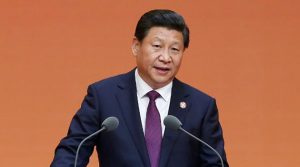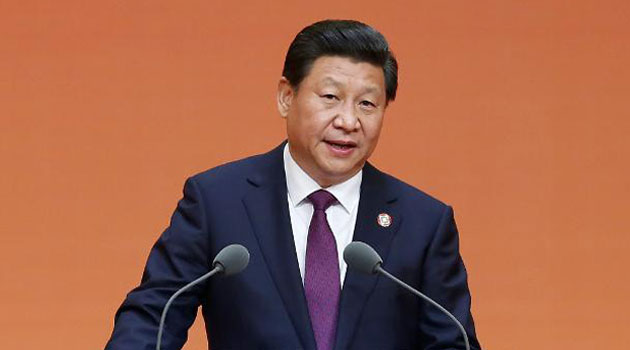The Communist Party’s Influence Is Expanding — in China and Beyond

“Chairman Xi is a descendant of the revolution,” said Liu Yanbin, as he paid a visit to a Chinese revolutionary shrine in Xibaipo, some 350 kilometers (220 miles) from Beijing.
A true believer, the 30-year-old from the surrounding province of Hebei worried that young Chinese were clueless about what the revolution was really about. “China wasn’t just poor before, it had backward ideas,” he said, before bounding up the steps toward the monument.
President Xi Jinping seems worried, too. That’s why Xi got China’s parliament to pass sweeping changes to the constitution Sunday, repealing presidential term limits so he can rule indefinitely. He’s also taking other measures to dramatically expand the Communist Party’s role in daily life.
Since taking power five years ago, Xi has reasserted the party’s supremacy, with himself as its “core” leader. That has meant greater control over personnel and strategy at state-owned enterprises, which control about 40 percent of the nation’s industrial production, as well as schools and universities.
Speaking at a party meeting in October, Xi revived a phrase from Mao Zedong and declared, “east, west, south, north and center — the party leads everything.”
Xi’s chief policy-making instrument has been an increasing array of party “leading small groups,” which set and coordinate policy. He’s overhauled the bureaucracy to make the party more dominant, while also giving it a far more prominent role in business.
In practice, this has seen the government promote a presence for party committees in companies. Some state-owned enterprises such as FAW Car Co. and Sinoma Science & Technology Co. changed their company bylaws to provide a greater role for party committees.
The changes are impacting foreign companies and their joint ventures, too. The vice minister of the party’s organization department, Qi Yu, boasted in October that some 70 percent of the 106,000 foreign firms operating in China already had party committees.
“Companies are concerned establishment of a party unit in the company means the party would play a role in companies’ operational decision making — leading to decisions made for political rather than business reasons,” said Jacob Parker, vice president of China operations at the U.S.-China Business Council. “We are concerned about that. Introducing political objectives and management roles into foreign invested enterprises is not a positive step for businesses.”
Courtesy : Bloomberg , Capital FM Kenya
[social_warfare buttons=”Facebook,Pinterest,LinkedIn,Twitter,Total”]



